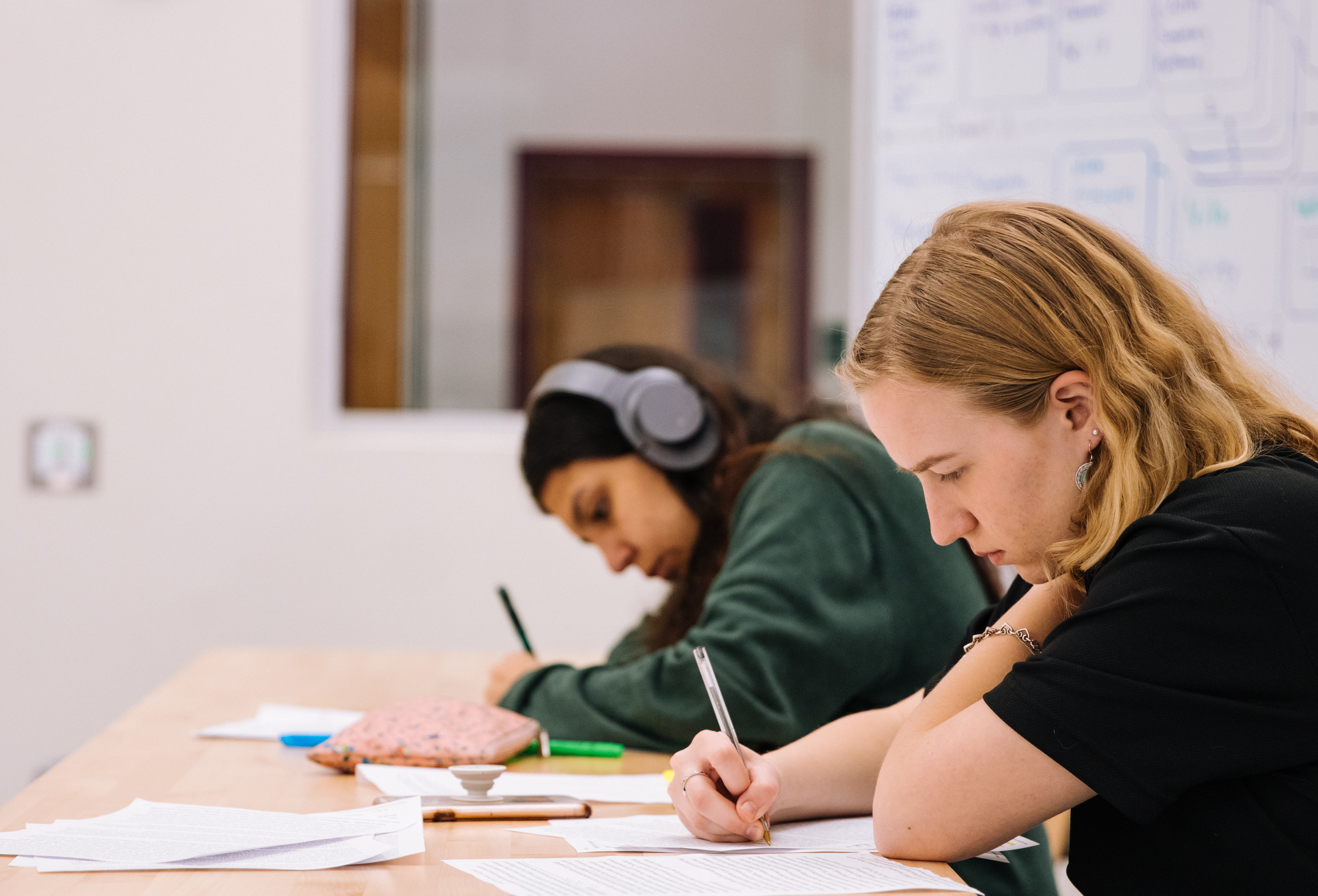How to Cope with Exam Anxiety: Tips for Anxious Students
May 4, 2022


Lisa Daitz
Jan 23, 2025 27
- Exam season is nearly here - for many, the pressures of revising and fears of failure provoke anxiety
- Therapist Lisa Daitz offers anxiety-soothing techniques and urges anxious students to embrace the power of Plan B
- You can find therapists and counsellors to support you with anxiety here
With exam season finally beginning, managing anxiety seems to be at the forefront for many, whether you're the one taking the exams or you're supporting the student. For the GCSEs the exams are a long haul, often with a week's break in the middle, when you're trying to keep the momentum and the motivation going. For the A Levels and sometimes B and C techs, sometimes it feels like it's over very quickly. There's all the build-up and then suddenly, after all that hard work, it's done.
Whichever the exam, it's often managing the anxiety that becomes an issue. This can affect the revision itself, so that anxiety overtakes the ability to revise which, of course then leads you to feel less prepared and more anxious about the exam itself. And it can also affect the exam. So it's essential that exam anxiety is addressed so that it can be minimised and managed, leaving you more ready and able to cope with what's thrown at you during the next few weeks. This is where the importance of Plan B comes in.
You can put in place anxiety management techniques and strategies, and some of these are outlined below, but if you can consider and acknowledge the existence of a Plan B - that there are other routes and other ways if Plan A doesn't exactly go as you'd want it to - you can feel calmer and more able to get on with the task in hand.
Understanding the anxiety
We all know that this period can provoke anxiety and as a psychotherapist working online and in-person, when I work with clients around anxiety, it's important that we work together to try to make sense of what this anxiety means. Anxiety isn't a separate entity or object, it's our body's very powerful way of communicating with us and there are many ways we can make sense of it.
Automatic and signal anxiety: making the distinction
Freud talks about automatic anxiety and signal anxiety and I find this theory really helpful when working with clients.
Freud's primary automatic anxiety is triggered by a traumatic situation in which we can feel overwhelmed. These 'danger situations' may centre around the idea of being helpless, losing someone we love or even losing ourselves. We often can't make sense of this feeling, but it feels like our very existence is under threat.
Before automatic anxiety, we get the early warning, Freud's signal anxiety. Signal anxiety brings with it the anxiety symptoms we can all recognise. Here come the stomach flips, the changes in our breathing, the inability to concentrate. Signal anxiety is carrying important signs but all too often the focus is on this type of anxiety alone. To make a real difference you need to recognise the automatic anxiety and understand what it means to you.
Signal anxiety
Signal anxiety is what we all know and don't love! Here CBT and stress and anxiety management techniques, including exam and revision strategies, are often used to manage the symptoms. There are many links and articles providing ideas on anxiety management and here are some that are useful:
Breathing
Signal anxiety often brings changes in breathing and it's important to recognise these changes and focus on bringing your breathing back to a calmer rhythm. Closing your eyes or just lowering your gaze, slowly and gently breathe in.
Count to four and hold the breath, putting you hand on your stomach before slowly breathing out to the count of four. Repeat a few times and come back to this breathing technique when you need to do so.
Staying present
Anxiety is future-focused, so if you can completely engage with the present - this exact second! - you'll find the anxiety will lessen. Easier said than done, right? But physical engagement helps. Focus on writing, whether that's holding the pen or forming the letter. If you're typing then focus on the feeling of each finger as it hits each key. If you can stay in the present you'll find the symptoms are alleviated.
It comes, it goes
Sometimes there's a wash of anxiety and here it can be useful to go with it and to feel it wash over you, knowing that it will pass. It will come and it will sweep over you and it will go. This can often feel peaceful and empowering. You're not batting it away, you're sitting in the wave and the wave will go.
Engage the energy
Gestalt theory talks about anxiety showing itself as changes in breathing caused by trapped energy. It's something you may recognise. If you can release the energy through action, whether it's by going for a run, writing out today's action plan, or cooking a meal, this will release the energy and allow some calm.
Automatic anxiety and Plan B
If signal anxiety is warning us that automatic anxiety is on the way, therapy can really help to understand the triggering 'dangerous situation' for the automatic anxiety. Exploring the perceived danger, the possible traumatic situation or asking "is this a threat to my existence?" gives interesting answers leading you to realise what you're pinning on the exams. Because often it feels like the exams mean everything; that there's no alternative; that if you don't meet your goals then you can't see another way and you can't fail and, and, and... It's not the greatest way to engage in exam revision or to walk into the exam hall!
So here's where the importance of Plan B comes in. Yes, it's great to be able to calmly revise, to know your whole syllabus, to have envisaged and successfully practised every question, to walk into the exam hall and have your preferred questions come up and to be able to recall every answer. But it's equally important to acknowledge that, whilst Plan A is the dream, there is always a Plan B. By staring Plan B in the face and talking through 'what happens if?' you can see that there will always be other options.
The Plan B idea is not manifesting 'failure' or 'tempting fate', it's taking the pressure off the idea of everything being pinned on the few hours in the exam hall. So think it through, talk it through. Plan for Plan A but acknowledge Plan B. By doing that, you can free yourself to do the work and sit the exam with less anxiety and, who knows, maybe even enjoy it!
Lisa Daitz is a verified welldoing therapist in North London and online

Lisa Daitz
Read further
